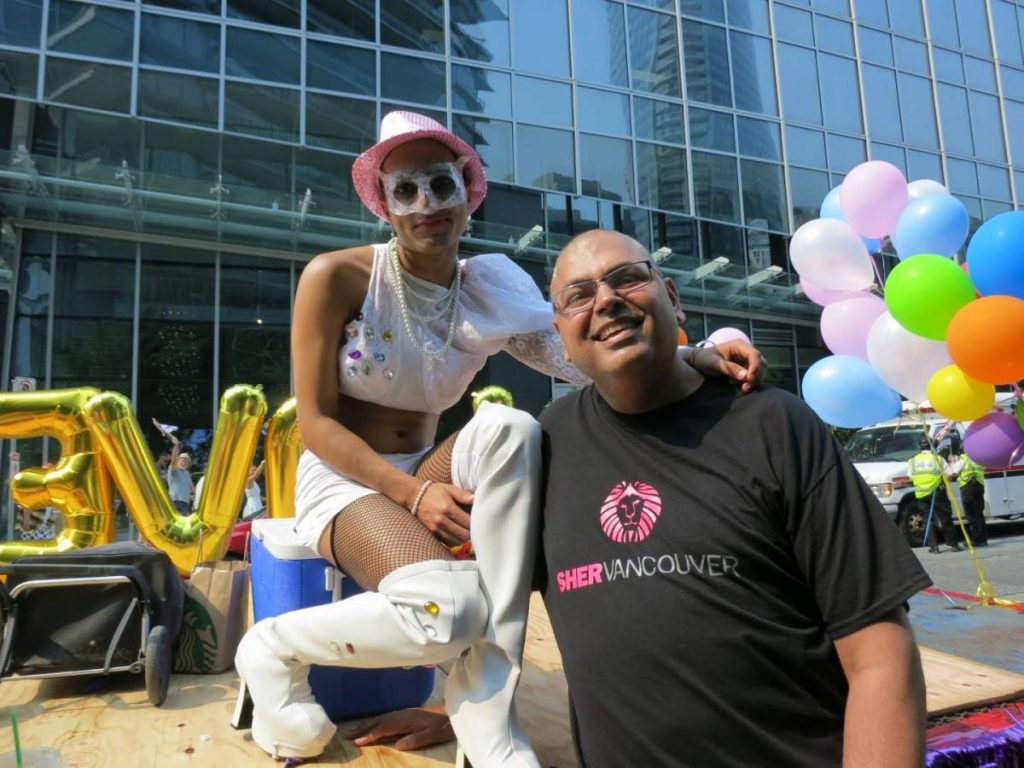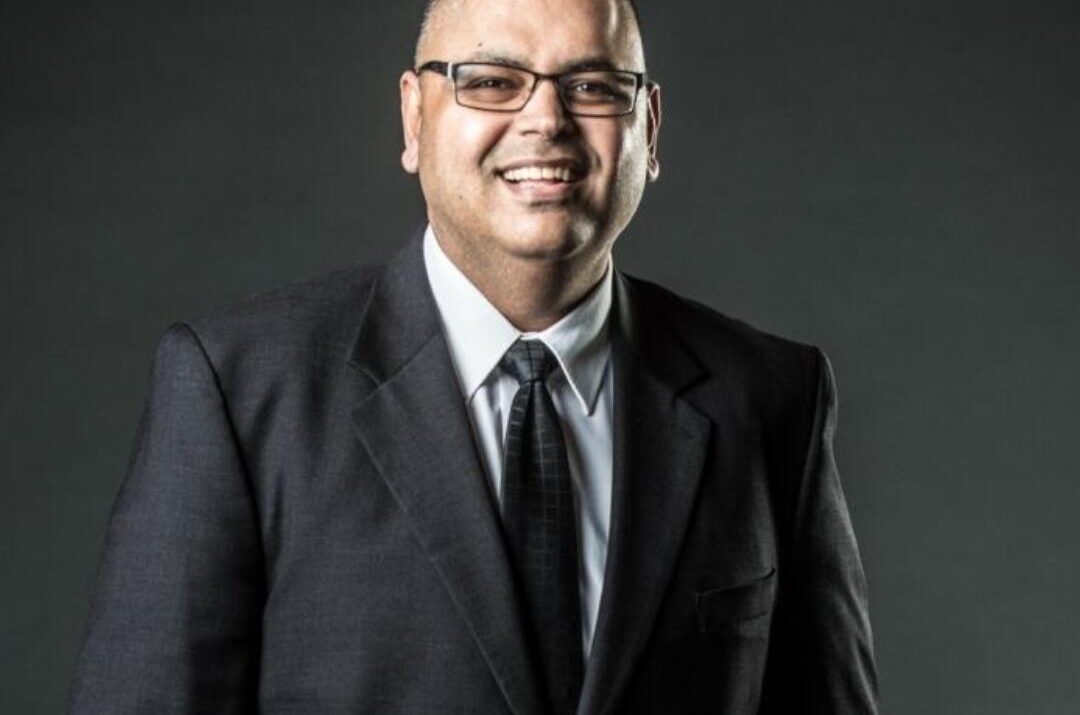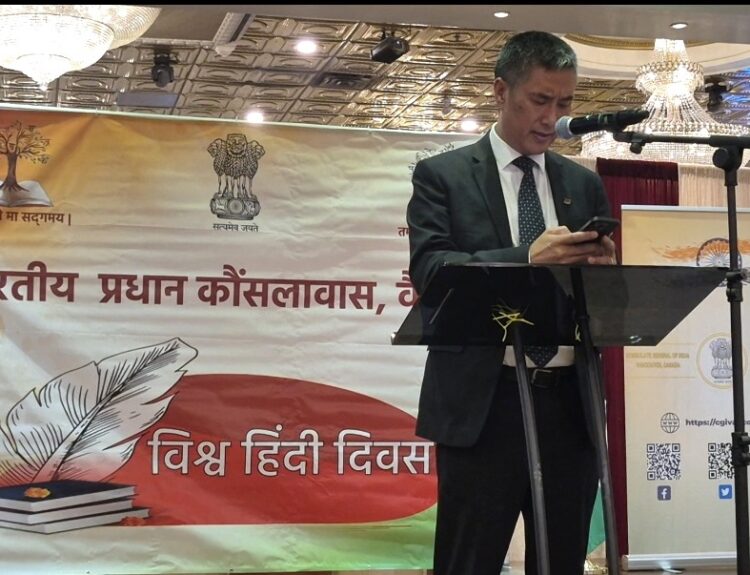By Alex Sangha
I’m Alex Sangha, a gay South Asian man living with a mental illness, and these intersections of identity have shaped my journey. Growing up in a culture where mental illness is often misunderstood and homosexuality is widely unaccepted presented significant challenges. Still, I found a path forward by embracing my unique experiences and focusing on my strengths. I now stand as a social worker, filmmaker, founder of Sher Vancouver, and co-founder of the Sundar Prize Film Festival, all while managing mental health conditions. This is my story of resilience and transformation, shared in honor of Mental Health Awareness Week in Canada, celebrated from October 6 to 12, 2024.
Leaving Home; Encountering the “Light”
As a closeted young man, I struggled deeply with my sexuality. The immense pressure within the South Asian community to marry and have children weighed heavily on me, and for much of my adolescence, I felt lost and despondent. Suicidal thoughts plagued my teens as I grappled with the idea of being different. At 13, I secretly sought the help of a psychiatrist, hoping that professional intervention could change my sexuality. Instead of trying to “cure” me, my psychiatrist provided support in navigating my emotions and coming out, ultimately helping me accept my identity as a gay man.
At 19, I left Canada for England, hoping to escape the weight of cultural expectations and embrace my identity. While living with my grandfather in Kent, I enrolled in college but soon found myself overwhelmed by loneliness and emotional instability. My thoughts spiraled, and I began to experience racing ideas, sleeplessness, and physical changes. Within weeks, I hardly recognized myself.
During a particularly intense period, I had an epiphany, a type of spiritual experience—a moment of seeing a remarkable divine light that profoundly impacted me. I was unsure what to make of it, but I felt it had significant meaning. Despite receiving treatment for my physical health, my mental state continued to fluctuate. This was the first break of mania I experienced, although I didn’t recognize it as such at the time.

Coming Home: Struggling Through My 20s
Returning to Canada was difficult. Though I had a renewed sense of purpose, driven by the desire to help others, I was still struggling with my mental health. I pursued a career in social work, feeling that my spiritual experience in England had directed me toward this path. However, my journey was far from linear. I lost my first year at the UBC School of Social Work as I went in and out of treatment, dealing with periods of mania and depression. It was during this time that I fully realized I had a mental illness, and accepting that I had a lifelong condition was a challenging but crucial step.
In my early 20s, I was still concealing my sexuality from my family. When my mother asked me if I was gay, I lied, telling her I was bisexual. The weight of keeping this secret was immense, but I found solace in volunteering with a gay and lesbian student group at UBC. Through this group, I was able to make friends and help educate others on homophobia and discrimination. It was empowering to create a space for others to feel safe in coming out, even when I was not entirely out myself.
Finding Peace and Purpose
My 30s brought a greater understanding of my mental illness and the need for long-term management. Over the years, I have been diagnosed with schizophrenia, schizoaffective disorder, and, currently, bipolar disorder, which I believe is my superpower because it makes me a creative visionary. Navigating these conditions has been a balancing act of finding the proper medications and coping strategies. Today, I work closely with my doctors to ensure I take the lowest effective dose of medication to manage my symptoms while minimizing side effects.
I have embraced a holistic approach to my mental health. Along with medication, I incorporate counseling, a nutritious diet, regular exercise, socializing, and participation in support groups into my routine. Swimming, in particular, has become a therapeutic practice for me, benefiting my body and mind.
As I built this support structure around me, I developed organizations to support others. In 2008, I founded Sher Vancouver, a non-profit supporting LGBTQ+ South Asians and their allies. We offer peer support, counseling, social activities, and advocacy, helping others who may feel isolated or misunderstood due to their sexual or gender identities. Sher Vancouver has become a lifeline for many, reducing the alienation and depression often associated with the coming out process.
In 2021, I co-founded the Sundar Prize Film Festival, a platform that celebrates impactful storytelling focused on social issues. It’s a space where filmmakers from underrepresented communities, including those grappling with mental illness and LGBTQ+ identities, can share their stories with the world. Through this work, I aim to foster empathy and understanding for myself and others.

Embracing My Light
Looking back, I now understand the divine light I saw during that difficult period in England as a spiritual experience. For a long time, I questioned whether it was a hallucination or a product of my mental illness. But I’ve come to believe it was something more—a sign that it’s okay to be who I am. That light continues to guide me, bringing peace and reminding me that my journey has a deeper purpose.
Though the stigma surrounding mental illness and homosexuality persists, I have found ways to rise above it, using my challenges as stepping stones toward a meaningful life. I hope my story inspires others during this Mental Health Awareness Week, reminding them that there is always light ahead even in the darkest moments.
Alex Sangha is a Registered Clinical Social Worker and Registered Clinical Counsellor with a private counselling practice in North Delta. He is the recipient of the Meritorious Service Medal from the Governor General of Canada.















14 Comments
Registrácia
9 months agoYour article helped me a lot, is there any more related content? Thanks!
ücretsiz binance hesabi
5 months agoYour article helped me a lot, is there any more related content? Thanks!
Junior Prehoda
3 months agoSimply want to say your article is as surprising. The clarity in your post is just cool and i can assume you’re an expert on this subject. Fine with your permission let me to grab your feed to keep up to date with forthcoming post. Thanks a million and please carry on the gratifying work.
MM88
2 months agoVới giao diện mượt mà và ưu đãi hấp dẫn, MM88 là lựa chọn lý tưởng cho các tín đồ giải trí trực tuyến.
MM88
2 months agoVới giao diện mượt mà và ưu đãi hấp dẫn, MM88 là lựa chọn lý tưởng cho các tín đồ giải trí trực tuyến.
J88
2 months agoĐến với J88, bạn sẽ được trải nghiệm dịch vụ cá cược chuyên nghiệp cùng hàng ngàn sự kiện khuyến mãi độc quyền.
MM88
2 months agoVới giao diện mượt mà và ưu đãi hấp dẫn, MM88 là lựa chọn lý tưởng cho các tín đồ giải trí trực tuyến.
iwin
2 months agoiwin – nền tảng game bài đổi thưởng uy tín, nơi bạn có thể thử vận may và tận hưởng nhiều tựa game hấp
iwin
1 month agoiwin – nền tảng game bài đổi thưởng uy tín, nơi bạn có thể thử vận may và tận hưởng nhiều tựa game hấp
irwin casino auszahlungsdauer
4 weeks agoZwar verläuft nicht alles nach Plan, doch als Bond auf eigene Faust
weiter ermittelt kommt er auf die Spur von Le Chiffre, dem Bankier einer weltweit operierenden Terror-Organisation. In unserem Moviepilot-Podcast diskutieren wir regelmäßig über neue Serien, Filmhighlights und geben dir die
besten Tipps für dein nächstes Streaming-Abenteuer.
Falls du auf der Suche nach ähnlichen Filmen bist, lohnt sich ein Blick
in unser Streaming-Programm. Die Veröffentlichung von Serien und Filmen auf Streaming-Plattformen mit Flatrates erfolgt oft zeitnah zum Blu-ray- oder DVD-Start, also etwa 6–12 Monate nach
der Erstausstrahlung oder dem Kinostart.
Es wird hier nicht etwa einfach ein neues Bond-Abenteuer mit einem neuen Hauptdarsteller erzählt.
Dieser Film wäre mit Brosnan kaum möglich gewesen. Craig muss den Vergleich mit
seinen Vorgängern nicht scheuen. Zu blond, zu hässlich, zu weibisch,
sogar die Fähigkeit, mit einer Gangschaltung umzugehen, wurde
ihm abgesprochen (alles dummes Zeug, das nur nebenbei).
References:
https://online-spielhallen.de/rizk-casino-promo-code-dein-umfassender-guide/
SP77 Australia
3 weeks agoAjman’s real estate market is regulated by the Ajman Real Estate Regulatory Authority (ARERA), established
in December 2008 to bring regulation to bear on Ajman’s fast-growing and uncontrolled property boom.
The list of cities for which data is available in the Ajman Metropolitan Area
has been updated in the corresponding sources. Both Manama
and Masfout are fertile regions and support widespread agricultural development.
The city and main territory of Ajman is bordered to the
landward side by Sharjah, while Manama shares borders with Sharjah and Fujairah.
It consists of a small town that provides essential services and valleys sustained by
subsistence farming and marble quarrying. Manama is in the plains at the
foothills of the Hajjar Mountains some 60 km east of Ajman city.
Chatbots are computer programs that simulate human conversation, written or spoken. Chatbots are computer
programs that simulate human conversation. These tools help you write clearly,
check originality, and make AI-generated text sound natural and human. Simply type what you want to do or would
like help with in the chatbox in simple language and let QuillBot’s
AI Chat take care of the rest!
References:
https://blackcoin.co/treasury-casino-a-comprehensive-overview/
high limit casino player
3 weeks agoEnter your details, create a secure password, and verify your account.
Players can deposit and withdraw funds safely. Secure transactions are guaranteed at
casino Ozwin. Players can set deposit limits,
take breaks, or self-exclude if needed. The casino uses Random Number Generator (RNG) technology to
ensure unbiased results. Game fairness is a top
priority at casino Ozwin.
Bitcoin and eZeeWallet tend to be the fastest options, often clearing within minutes once your account’s verified.
You’ll find classic three-reel sets, feature-packed video pokies, and big hitters with progressive jackpots that climb
faster than petrol prices. The lobby houses 500+ real-money titles, most powered by Real Time Gaming — a well-known developer in the Aussie market.
If pokies are your bread and butter, Ozwin’s a comfy
spot to settle in. Winnings from free spins must be wagered
at least 20 times on the pokies listed above.
References:
https://blackcoin.co/we-tested-50-aussie-online-casinos-these-paid-real-money/
ptshop.co.kr
3 weeks agoonline blackjack paypal
References:
ptshop.co.kr
finbullish.com
3 weeks agopaypal casino online
References:
https://finbullish.com/companies/mejores-casinos-online-con-dinero-real-en-usa-top-2025/